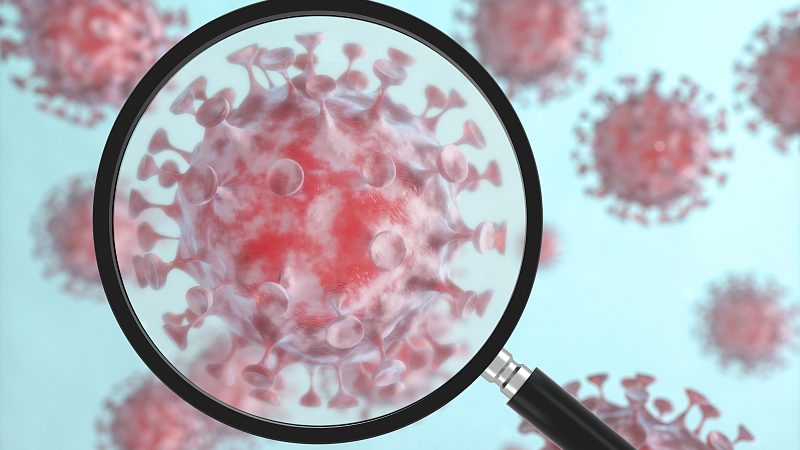Researchers from the King’s College London in the UK have recently identified six distinct types of COVID-19 by analyzing data collected from a COVID-19 tracking application, saying each of the type distinguished by a cluster of symptoms.
The researchers said these types also correlated with levels of severity of infection, and with the likelihood of a patient needing help with breathing during hospitalization, such as oxygen or ventilator treatment.
The findings “have major implications for clinical management of COVID-19, and could help doctors predict who is most at risk and likely to need hospital care in a second wave of coronavirus infections,” according to the college’s official website.
Data from the COVID Symptom Study app reveals that symptoms including headaches, muscle pains, fatigue, diarrhea, confusion, loss of appetite and shortness of breath are also what patients can experience, besides the three commonly known key symptoms of the disease – cough, fever and loss of smell.
It also shows that patients differ significantly in the progression and outcome, as some only had mild flu-like symptoms while others suffered acute symptoms or died.
In attempt to find out people with what symptoms would develop to a severe condition and who would need oxygen or ventilator support, the researchers used a machine learning algorithm to analyze data from the app obtained from “around 1,600 users in the UK and U.S. with confirmed COVID-19 who had regularly logged their symptoms using the app in March and April.”
They also tested the algorithm by applying it on another independent dataset of around 1,000 users in the UK, U.S. and Sweden, who had logged their symptoms in May.
The study, released online on June 16 but not peer-reviewed by independent scientists, described the six clusters as:
1. “flu-like” with no fever: Headache, loss of smell, muscle pains, cough, sore throat, chest pain, no fever.
2. “flu-like” with fever: Headache, loss of smell, cough, sore throat, hoarseness, fever, loss of appetite.
3. gastrointestinal: Headache, loss of smell, loss of appetite, diarrhea, sore throat, chest pain, no cough.
4. severe level one, fatigue: Headache, loss of smell, cough, fever, hoarseness, chest pain, fatigue.
5. severe level two, confusion: Headache, loss of smell, loss of appetite, cough, fever, hoarseness, sore throat, chest pain, fatigue, confusion, muscle pain.
6. severe level three, abdominal and respiratory: Headache, loss of smell, loss of appetite, cough, fever, hoarseness, sore throat, chest pain, fatigue, confusion, muscle pain, shortness of breath, diarrhea, abdominal pain.
Patients with cluster 4, 5 and 6 types were more likely to be admitted to hospitals and more likely to need respiratory support, the researchers said, as “only 1.5 percent of people with cluster 1, 4.4 percent of people with cluster 2 and 3.3 percent of people with cluster 3 COVID-19 required breathing support. These figures were 8.6 percent, 9.9 percent and 19.8 percent for clusters 4, 5 and 6 respectively.”
“These findings have important implications for care and monitoring of people who are most vulnerable to severe COVID-19,” said Dr Claire Steves from King’s College London who co-led the study.
“If you can predict who these people are at day five, you have time to give them support and early interventions such as monitoring blood oxygen and sugar levels, and ensuring they are properly hydrated – simple care that could be given at home, preventing hospitalizations and saving lives.”
British-developed antibody test
At the same time, researchers from the Oxford University partnered with local diagnosis companies have developed a COVID-19 antibody test, which is said to be able to identify if a person has been exposed to the novel coronavirus within 20 minutes, The Telegraph reported on Friday.
Designed for home use, the finger-prick test reached an accuracy of 98.6 percent in secret human trials last month.
Tens of thousands of prototypes have been manufactured for validation testing of the AbC-19 lateral flow test, and the regulatory approval from the Medicines and Healthcare products Regulatory Agency is expected in coming weeks, the report said.
It added that ministers hope that the test will be available for use in a mass screening program before the end of the year.


.jpeg&w=60&q=100&h=60)





.jpeg&w=60&q=100&h=60)





